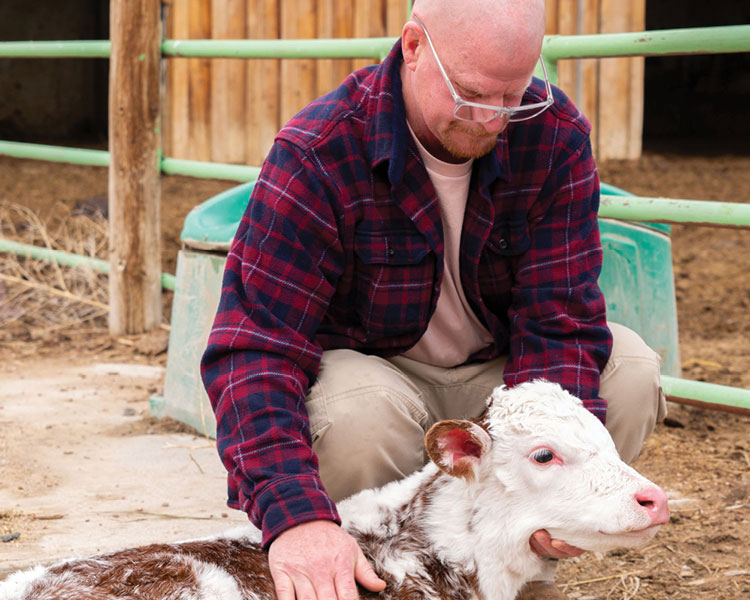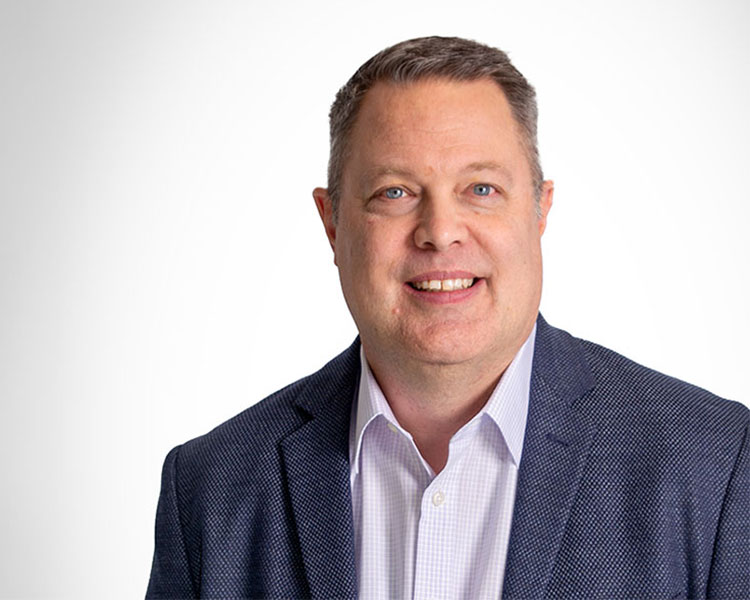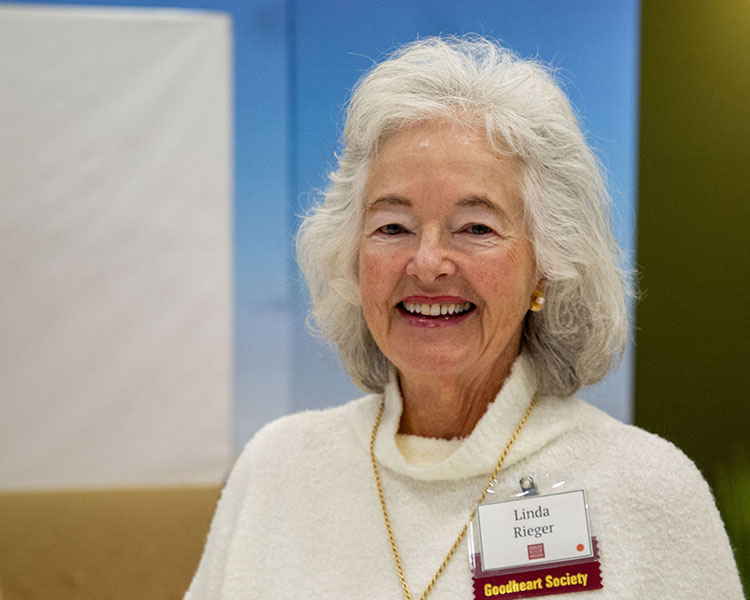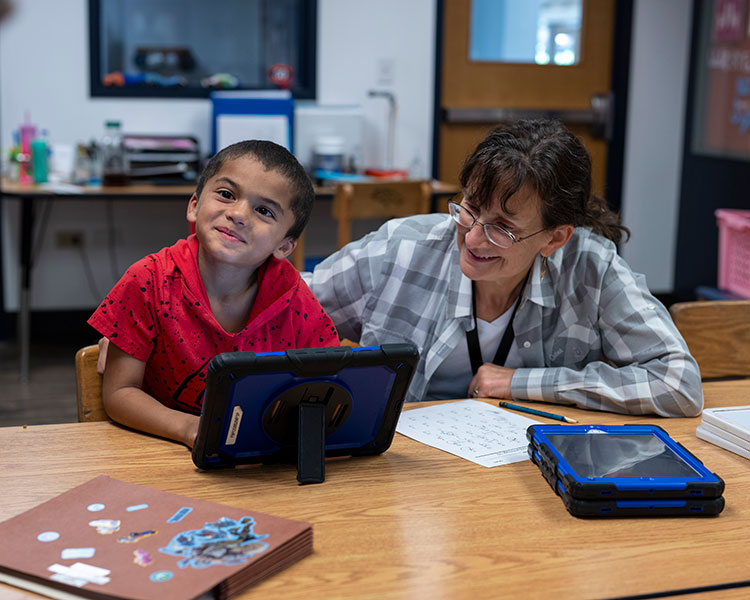
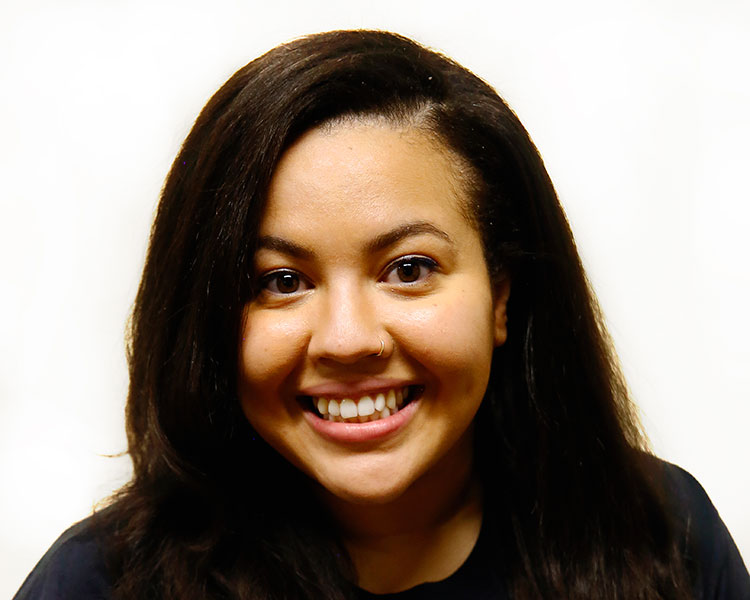
Jaquella Brennan is a case manager for the Mission’s STAR Transitional Program. She previously worked as an economic literacy educator as well as a housing case manager for Family Abuse Center. She is in the process of becoming a certified addictions counselor and is passionate about working with marginalized populations.
Will you describe your role as a case manager for the STAR Transitional Program?
I conduct intakes and orientations when new participants join the program. It’s great working at The Crossing. I meet with my participants every other week, but I see them all the time. They love stopping by my office and giving updates, even about the small things. When a participant first joins, I conduct assessments to see what barriers they have to accessing stable housing. I get them connected to resources and make sure they meet the program’s goals. Sometimes they just don’t know what resources are available, and our job is to connect them—to get them to a place where when they leave here, they’re better than when they came in. I was an economic literacy educator before, so I know the importance of stable housing and finances, which are key indicators of whether participants will experience homelessness again. I’m not asking them to be perfect, I’m asking them to show up and try. It’s progress, never perfection.
Will you share about the relational support that you provide as a case manager?
Our jobs are so much more than just documentation. Sometimes we really are the only support system these participants have. We talk about the importance of community and rebuilding their relationships with family and friends. Creating a space where they can talk is really helpful for them, because they may not have people in their lives who will listen, and they have a lot that they are carrying on their shoulders.
How is the STAR program set up to successfully help participants?
They need a foundation to be able to tackle other things in life, and our program provides that through stable housing during this transition period. They can’t focus on other issues if their foundation is not solid. They can’t focus on being on time for work when they don’t have a place to brush their teeth or lay their heads. We have staff on property 24/7 creating structure, accountability and a safe environment, which helps them go from surviving to thriving.
What’s your favorite part about your job?
I really love the rapport building of case management. A lot of participants haven’t had great experiences with social services. Some have never been homeless before or have had so much trauma in their lives, so they have a lot of walls up. I’m grateful that they are allowing me on their journeys. I’m only here for a tiny piece of their lives, but I get to support them and remind them that God loves them and sees them. It’s hard when you’re in a storm to see outside of it, and I get to be a voice of support and love for them. I really enjoy working with this population, because people don’t have to suffer if they have access to resources. If you just give people a chance, you’re going to be amazed at what they can do. I want to love people the way God has loved me. He has loved me so well, and I pray that my participants feel the same way. I also really love working with my coworkers, who speak life into me every day. I am truly blessed to be on a team that wants to pour into us and gives us numerous opportunities to be better case managers, which in turn, helps our participants.
Why are you passionate about working at the Mission?
I love that God is present here. The Mission does an amazing job of providing a safe foundation for participants to grow. We plant the seeds, and we may not get to see them bloom immediately, but I know that in a year or two or even three—even 10 years down the line—those seeds will eventually bloom. I am so empathetic to people’s needs, because I know what it’s like to go without and how life-changing it is for just one person to see you. If I can help just one person, that’s beautiful. And I’m grateful that we get to help hundreds every day.
This post is part of February’s Changing Lives Newsletter. In this edition, Where Are They Now?, you’ll catch up with the Houstons, a family of nine, to see how they’re doing over a year after graduating from the STAR program.




